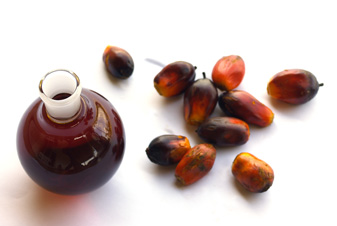Okomu Oil Palm, the oil palm and rubber producing company is showing a strong growth in earnings for the second year, sustaining a recovery move it made last year after revenue and profit dropped for three years running. The company’s first quarter report shows strong growths in revenue and profit that are promising to see earnings figures looking up once again.
Growing revenue is reinforced by general cost moderation and a major gain in profit margin has lifted profit capacity. The company doubled profit in 2015 and another high growth looks likely for it in the current year.
Sales revenue amounted to N3.32 billion for Okomu Oil Palm at the end of the first quarter in March, an increase of 37.2% year-on-year. It had grown sales revenue by 12.5% at the end of 2015 to N9.74 billion, the first revenue growth since 2012. Based on the first quarter growth rate, adjusted for off season slowdown in the second half, turnover is projected at N11.62 billion for the company at the end of 2016. This will be a new high in sales revenue for the company ahead of the peak earnings figure of N11.12 billion it posted in 2011.
Sales revenue had declined consistently from the 2011 record to a four-year low of N8.65 billion in 2014. The company has sizeable export revenue from rubber exports at N364 million in the first quarter, a drop however from N461 million in the same period in 2015. It generated a little under N2.0 billion in export revenue from rubber exports in the 2015 full year.
Advertisement
The company reported an after tax profit of about N1.6 billion at the end of the first quarter trading, a rise of 55.3% from the N1.03 billion it earned in the same period last year. This indicates another strong growth in profit for the company after it virtually doubled net profit from N1.33 billion in 2014 to N2.63 billion in 2015.
Based on the adjusted growth rate for the year, recognizing likely slowdown in the second half [off season], after tax profit is projected at N4.3 billion for Okomu Oil Palm at the end of 2016. This will be another outstanding growth of 63.5% over the net profit figure of N2.63 billion the company posted at the end of 2015. This will be the biggest profit figure in three years and yet well below the company’s peak profit figure of N10.52 billion in 2011 – which actually was a windfall from changes in fair value of non-current biological assets.
Profit capacity is significantly improved with a big gain in profit margin from 27% at the end of last year to 48% at the end of the first quarter. This is one of the highest profit margins seen from companies across sectors and industries listed on the Nigerian Stock Exchange. The company’s advantage is its dependence on local raw materials with little dollar content in its normal operations.
Advertisement
The increase in sales revenue in the first quarter was achieved at a significantly increased cost of sales – which soared 176% to N530 million, lowering gross profit margin from 92% to 84% over the review period. Moderation of all other costs, including a drop of 46% in finance expenses however remedied the impact of cost of sales on the bottom line.
The company earned N1.67 per share at the end of the first quarter, up from N1.08 in the same period last year. Full year outlook indicates earnings per share in the region of N4.50 for Okomu Oil Palm in 2016. That will be a rise from N2.76 it earned at the end of last year.
The company has declared a cash dividend of 10 kobo per share for its 2015 operations. Its register will close between 10-13th May and payment date is fixed for 27th June 2016. Dividend payout capacity is constrained by the impact of investments on new plantation on cash flow, which led to increased borrowing in 2015. At the end of the first quarter, the company’s outstanding balance sheet debts are down by 12.5% to N3.26 billion.
Advertisement
Add a comment






